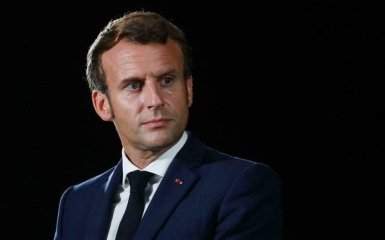French President Emmanuel Macron's statement about the possible deployment of troops to Ukraine has angered American officials, who fear that it could lead to a direct confrontation with the Russian Federation.
The US and German attitudes to Macron's statements
Citing a source familiar with the discussions between the allies, Bloomberg writes that Macron's statements about the possible deployment of troops to Ukraine drew immediate and very public criticism from German Chancellor Olaf Scholz and angered American officials.
The latter privately say that such a step could lead to the instigation of a clash with the Russian Federation.
According to a senior US official, Macron managed to dispel ambiguity about allies' red lines by getting Berlin to rule out sending troops publicly.
According to individual officials who spoke to Bloomberg anonymously, the comments were also not brilliant from an operational security perspective. It is especially true given that several countries already have some personnel in Ukraine privately.
The publication writes that Macron has assumed European leadership in confronting Russian aggression and the humanitarian disaster in Gaza, as Britain is no longer a member of the European Union and the German government is divided.
The unity of Europe in the face of Russia
Elections to the European Parliament will be held in June, so Macron is putting Ukraine at the forefront of the campaign, portraying his far-right opponent, Marine Le Pen, as an ally of Putin.
Some EU prime ministers also look to Macron's leadership, and many welcome his tough stance on Russia.
At the same time, critics of the French president say he talks more than he does. For example, although Macron publicly supported the Czech initiative to purchase ammunition for Ukraine, France did not contribute financially.
Germany, by contrast, will spend 300 million euros ($325 million) to purchase 180,000 shells.
In total, France has pledged less than €2 billion in support to Kiev since the invasion began, compared to Germany's €22 billion.
However, France says these figures do not account for the disproportionate impact of modern weapons on the battlefield.




